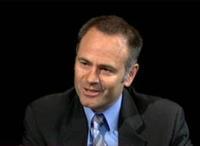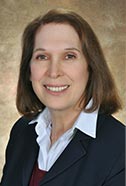|
Chair of the Board: William M. Landes is the Clifton R. Musser Professor Emeritus of Law and Economics, and Senior Lecturer at the University of Chicago Law School. Mr. Landes has written widely on the application of economics and quantitative methods to law and legal institutions, including multiple victim public shootings, hijacking of airplanes, and the bail system. Landes has been an editor of the Journal of Law and Economics (1975–1991) and the Journal of Legal Studies (1991–2000), is past president of the American Law and Economics Association, and is a member of the American Economic Association, the Mont Pelerin Society, and the Council of Economic Advisers of the American Enterprise Institute. He is also a Fellow of the American Academy of Arts and Sciences. |
 |
|
J. Scott Armstrong is a professor at the Wharton Business School of the University of Pennsylvania. He is internationally known for his pioneering work on forecasting methods. Most recently, his research activities have involved forecasting for terrorism and conflicts. He is author of Long-Range Forecasting, the most frequently cited book on forecasting methods. He is a co-founder of the Journal of Forecasting, the International Journal of Forecasting, the International Symposium on Forecasting, and forecastingprinciples.com. He is a co-developer of new methods including rule-based forecasting, causal forces for extrapolation, simulated interaction, structured analogies, and the “index method.” In addition to forecasting, Professor Armstrong has published papers on survey research, educational methods, applied statistics, social responsibility, strategic planning, and scientific peer review.
|
 |
|
Arthur Z. Berg, M.D. is a Distinguished Life Fellow of the American Psychiatric Association and former member of the APA Violence Task Force. He was founding Psychiatrist-in-Chief at Beverly Hospital (emeritus) and former Associate Professor of Psychiatry at Harvard Medical School. A recent article that Dr. Berg had in the Wall Street Journal on multiple victim public shootings is available here.
|
|
|
Tim Groseclose is the Marvin Hoffenberg Professor of American Politics at UCLA. He holds appointments in the political science and economics departments at the university. In 1987, he received his B.S. in Mathematical Sciences from Stanford University. In 1992, he received his PhD from Stanford’s Graduate School of Business. He is the author of over two dozen scholarly articles as well as the bookLeft Turn: How Liberal Media Bias Distorts the American Mind. Given the extensive media bias on guns, Professor Groseclose’s expertise on identifying media bias will be important. He contributes to the blog, www.Ricochet.com, and is an active tweeter at @Tim_Groseclose (https://twitter.com/Tim_Groseclose). You can learn more about him and his writings at www.timgroseclose.com.
|
 |
|
Jonathan M. Karpoff is the Washington Mutual Endowed Chair in Innovation Professor of Finance at the University of Washington Foster School of Business. Karpoff has published pathbreaking research on the topics of corporate crime and punishment as well as corporate governance. He is the associate editor for the Journal of Finance, Journal of Financial Economics, Journal of Financial and Quantitative Analysis, Management Science, Managerial and Decision Sciences, and The North American Journal of Economics and Finance. He has received a long list of academic awards.
|
 |
|
Joyce Lee Malcolm is the Patrick Henry Professor of Constitutional Law and the Second Amendment at George Mason University Law School. She has a Ph.D. in history and is internationally known for her books Guns and Violence: The English Experience, Harvard University Press (November 24, 2004), and To Keep and Bear Arms: The Origins of an Anglo-American Right, Harvard University Press (March 2, 1996). Guns and Violence provides a comprehensive history and examination of changes in murder rates in England from the middle ages to the current day. She is a Fellow of the Royal Historical Society, and she has held positions at Princeton University, the Massachusetts Institute of Technology, and Cambridge University. Malcolm also served as the Director, Division of Research Programs for the National Endowment for the Humanities during 2005-2006.
|
 |
|
Scott E. Masten is Professor of Business Economics and Public Policy in the University of Michigan Stephen M. Ross School of Business, where he has been a faculty member since 1984. A leading scholar in the area of transaction cost economics, Professor Masten’s research focuses on issues at the intersection of law, economics, and organization. In addition to his primary appointment, he has held appointments as the Louis and Myrtle Moskowitz Research Professor in Business and Law at Michigan, John M. Olin Faculty Research Fellow at Yale Law School, John M. Olin Distinguished Visiting Professor of Law at the University of Virginia Law School, and Visiting Professor in the University of Michigan Law School. He was President of the International Society for New Institutional Economics in 2008-09, is a co-editor of the Journal of Economics & Management Strategy, and serves on the editorial boards of the Journal of Law, Economics & Organization and Managerial and Decision Economics
|
 |
|
Carl Moody, Professor of Economics, William & Mary. Professor Moody has published extensively on the relationships between guns, crime and imprisonment in such academic journals as Criminology, Homicide Studies, the Journal of Law and Economics, the Journal of Legal Studies, and the Journal of Quantitative Criminology. He teaches mathematical economics and econometrics.
|
 |
|
J. Mark Ramseyer is the Mitsubishi Professor of Japanese Legal Studies at Harvard University Law School. Prior to coming to Harvard, Mark held tenured positions at the University of Chicago and UCLA and visiting positions at such places as the University of Tokyo, University of Virginia, Tel Aviv University, and University of Haifa. Among the vast array of topics that he has studied, he is an expert on the Japanese legal system including criminal law. In the field of criminal law and procedure, he has studied the relation between prosecutorial behavior, prosecutorial budgets, and conviction rates; the structure of the Japanese judiciary and its effect on the adjudication of politically charged cases; the relation between judicial background and the imposition of the death penalty; and the relation between court structure and conviction rates.
|
|
|
Paul H. Rubin is the Samuel Candler Dobbs Professor of Economics at Emory University, and Editor in Chief of Managerial and Decision Economics. He has been president of the Southern Economic Association. His research interests have included crime, the death penalty, and gun control. He received his B.A. from the University of Cincinnati in 1963 and his Ph.D. from Purdue University in 1970. He is a Fellow of the Public Choice Society, a Senior Fellow at the Progress and Freedom Foundation, an Adjunct Scholar at the American Enterprise Institute and the Georgia Public Policy Foundation, and former Vice President of the Southern Economics Association. Dr. Rubin has been Senior Staff Economist at President Reagan’s Council of Economic Advisers, Chief Economist at the U.S. Consumer Product Safety Commission, Director of Advertising Economics at the Federal Trade Commission, and vice-president of Glassman-Oliver Economic Consultants, Inc., a litigation consulting firm in Washington.
|

|








